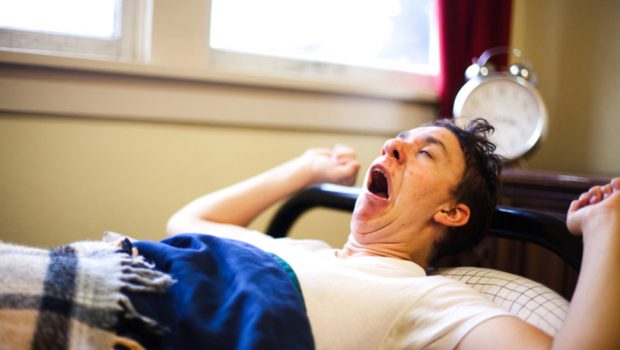The science of waking up
In the Wild West, a pistol was known as “The Devil’s Right Hand”. Today, the pistol is usurped by the snooze button; a small piece of plastic which offers hope of more sleep, only to cruelly snatch it away minutes later.
Sleep is one of the holy trinity of the health and fitness industry, joined by diet and exercise. Getting ‘a good night’s sleep’ is drilled into us from a young age and is the first piece of parental wisdom we generally remember. Unless you count “Because I said so” as a valid answer to the question, “Why not?”
Nowadays, we take alarm clocks for granted. It’s hardly surprising; the Greek philosopher Socrates was believed to have a prototype version, using a water clock – a Clepsydra – to signal the start of his lectures at dawn. It’s not known how he achieved the alarm function although some believe the sound akin to that of a water organ. .
Two hundred years later, Ctesibius from Alexandria, produced the first clock in a format we have come to know and love. A hand on the face of the dial, with the alarm using a gong or intriguingly, bell jars filled with air to power trumpets, either of which scared the living bejesus out of the unsuspecting guest in his villa.
Through the ages, the mechanics of the alarm clock became more sophisticated but equally manual methods of waking workers for the fields or factories were common.
The common solution was for a “knocker-up” – shortened to “knocker” in the north of England, would walk through villages, tapping on a slate on display outside of houses to wake the incumbents from their slumber. Generally filled by retirees or those unfit to work, the knocker would walk the streets in the early hours to ensure the workers woke at the time stated on the slate.
Redier Not, Here It Comes
In the meantime, the great civilisations all developed the idea from the Chinese through to Renaissance Italy developed their versions of the mechanical alarm clock. It wasn’t until 1847 that the first mechanical alarm clock as we understand them, was patented by Antoine Redier, a French inventor.
No longer were clocks rigidly set to one time but Redier’s invention enabled an industry to blossom, interrupted only by the war. In 1944, lateness for work in support of the war effort became such an issue that the production of alarm clocks was revived, having previously ceased to divert materials to munitions.
Since then, the technology has moved on leaps and bounds. Clock radios were the most enduring development, still available today. The advent of the compact disc allowed the device to morph into playing a CD instead of your favourite radio station.
If you watch any British sitcom from the 1970s, at some point there will be a bedroom scene. Calm yourself, Maud; it’s nothing as racy as today’s Hollywood blockbusters. Stiff upper lip and no sex please, we’re British; it was all cocoa and The Times crossword or a Len Deighton thriller.
And a teasmade. In theory, it was a fantastic idea; alarm clock off and a cup tea miraculously appeared by the bedside table. Some people called them ‘Mum’ but the rest of the public bought these machines in their droves. In the majority of cases, the teasmade was used once before the realisation struck that the end product was barely drinkable.
You can still find teasmades in Britain, but typically in guest houses along the coast in resorts which time forgot; Bognor, Scarborough and Yarmouth. And Worthing; almost inexplicably, there are a lot of teasmades in Worthing.
Most people nowadays use their alarm clocks on their mobile phone. Or should that be phones; it’s estimated that there are more phones than people in the world with the number of handsets expected to top 5 billion by 2019. The technology behind them is simple and adaptable with its rolling slot mechanism thought to be inspired by mechanical slot machines from yesteryear.
The science behind waking up continues apace. Studies show the type of sleep achieved is still important but the stage of the sleep cycle at which you awaken is equally vital to feeling fully refreshed.
Monitoring the sleep cycle has been used in some clocks since 2005 while others replicate the effect of dawn on the human body. And if nothing else fails, there is one surefire way to ensure you don’t oversleep. Drinking two or three pints of water before you go to bed is guaranteed to have you awake in good time for work.
Bladder control is after all, the oldest alarm clock in the business!






![TheWiSpy [Review]: Best Way to Track Android Phones Remotely](https://technofaq.org/wp-content/uploads/2021/08/track-android-phone-150x150.png)

![Apple Still Rules Mobile Industry [Amazing Infographics]](https://technofaq.org/wp-content/uploads/2016/08/realtime-stats-150x150.png)





